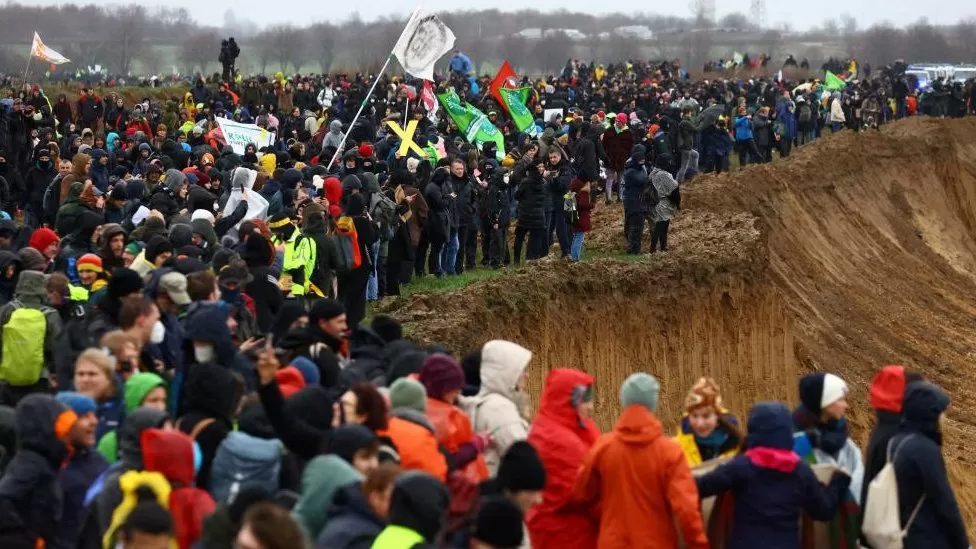The German Coal town Lützerath is the country’s Climate flashpoint
Hundreds of officers cleared around 300 activists from Lützerath in an operation that began on Wednesday. As rain and winds lashed the tiny west German village of Lützerath since Wednesday, police have removed hundreds of activists.
Some have been in Lützerath for more than two years. They had been occupying the homes abandoned by former residents after they were evicted, most by 2017, to make way for the mine.
More than 1,000 police officers are involved in the eviction operation. Most of the buildings have now been cleared. But some activists remained in treehouses or huddled in a hole dug into the ground as of Friday.
Police say they removed activists waiting in treehouses, a day after clashes broke out between both sides. Activists say burning the coal undermines Germany’s efforts to reduce greenhouse gas emissions.
Two people were still holding out in an underground tunnel at the site in western Germany, police added. “There are no further activists in the village of Lützerath”.
Police said that 35 “tree structures” and almost 30 wooden constructions had also been cleared away. Climate activists said that the village and others nearby should not be demolished and the coal under them, near an open-cast brown coal mine, should be left in the ground.
The village is owned by energy firm RWE, and the last resident moved out over a year ago. Germany has promised to phase out coal-fired power by 2030, bringing forward the date from 2038, and Lützerath is expected to be the final village to be swallowed up by the Garzweiler lignite mine. RWE said the coal under the village would be needed as early as this winter.
Lützerath – The Climate flashpoint
About 20 miles west of Dusseldorf, Lützerath, has long been a climate flashpoint in Germany because of its position on the edge of the open-cast lignite coal mine, Garzweiler II. Lignite is the most polluting form of coal.
The mine sprawls across around 35 square kilometers in North Rhine Westphalia. Its a huge, jagged gouge in the landscape. RWE has long planned to expand the mine further, in the face of criticism from climate groups.
But in October 2022, the government struck a deal with RWE that saved several villages – including Kuckum – but allowed Lützerath to be demolished to give RWE access to the coal beneath it.
In return, RWE agreed to bring forward its coal phase-out from 2038 to 2030. The Greens pitch it as a win. The Greens and RWE also say the expansion will help relieve the energy crisis caused by the war in Ukraine, which has curtailed gas supplies.
It “is not a renaissance of lignite or coal, but only a side-step – helping Germany to cope with the energy crisis,” RWE spokesperson Guido Steffen, told CNN in an email.
But the Climate groups fiercely oppose the deal. Many feel betrayed by the Green Party, including people who voted for them. While activist protest continuation of coal as a source of energy. RWE and the Greens both reject the claim the mine expansion will increase overall emissions, saying European caps mean extra carbon emissions can be offset.










